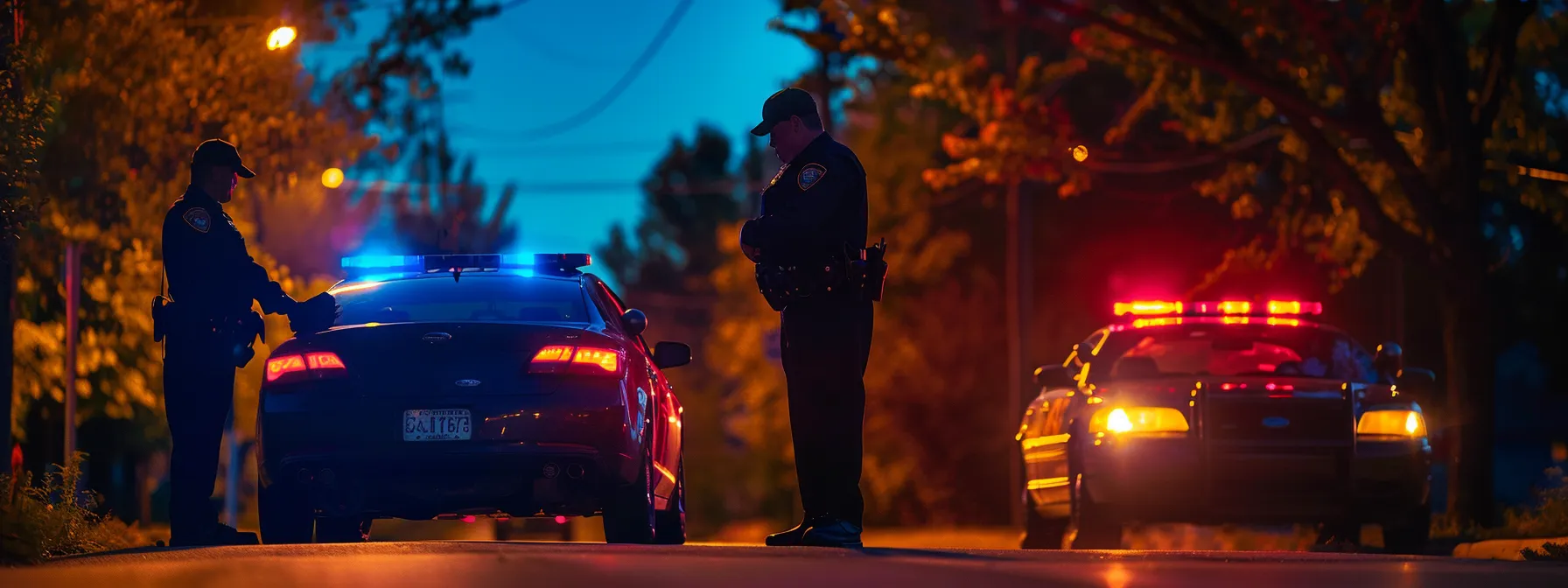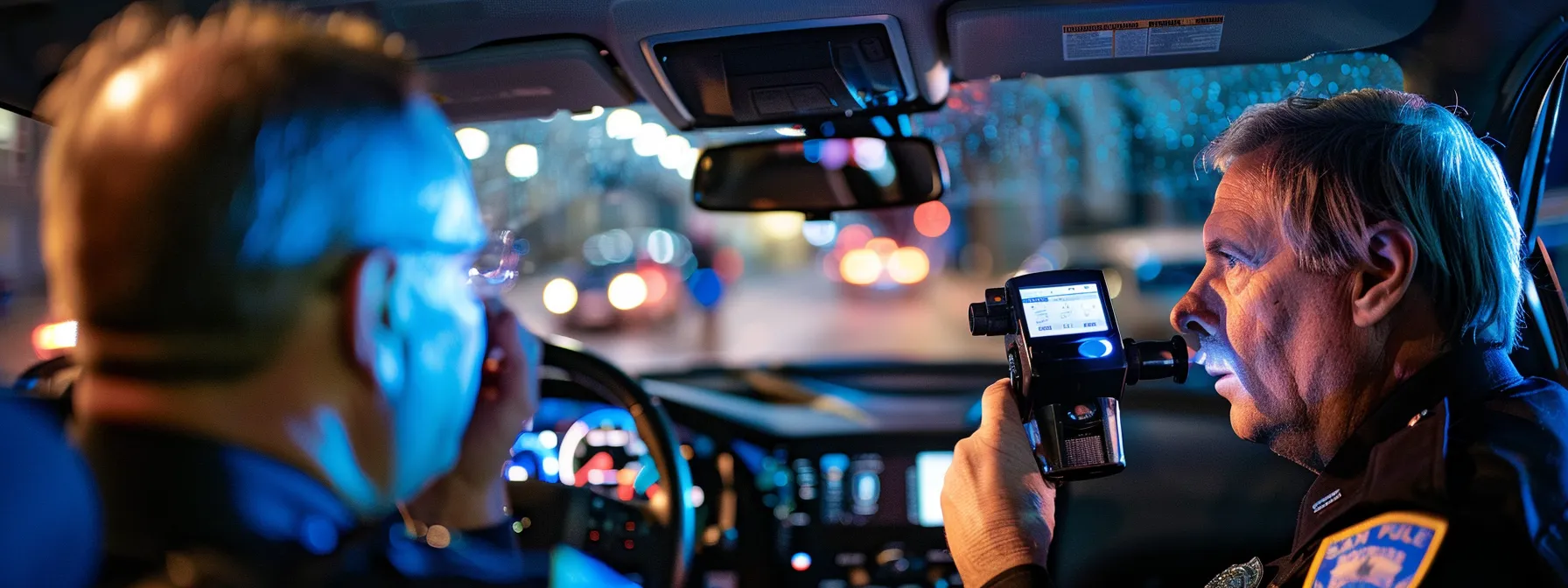Kansas City Drug Possession Attorney Explains: DUI vs. DWI – Understanding the Difference
Kansas City Drug Possession Attorney Explains: DUI vs. DWI – Understanding the Difference — At Kitchin Law Firm, we recognize that navigating Missouri’s legal distinctions regarding driving offenses can be perplexing, often leaving individuals uncertain about where their encounter with the law stands. As a notable felony criminal lawyer in Kansas City, our experience underscores the nuances that separate a DWI (Driving While Intoxicated) from a DUI (Driving Under the Influence) in the state of Missouri.
Those facing such charges, especially paired with drug possession, require a seasoned drug possession attorney in Kansas City to guide them through the complexities of their case and to protect their rights at every turn. Acknowledging the critical differences between these charges can influence the defense approach and, ultimately, the outcome of the legal proceedings. Read on to clarify these legal concepts and learn how the expertise of Kitchin Law Firm can be indispensable in your defense strategy.
The Difference Between a DWI and a DUI in Missouri

In the state of Missouri, navigating the complexities of law necessitates a clear understanding of specific legal terminology, particularly when facing charges related to driving under the influence of alcohol or drugs. A lawyer specializing in such cases can discern the subtle yet significant distinctions between a Driving While Intoxicated (DWI) and a Driving Under the Influence (DUI).
These distinctions are not merely semantic; they carry differing legal ramifications and consequences. As each case is scrutinized under Missouri laws, those accused of these crimes may encounter varied outcomes, with misdemeanors escalating to more severe charges depending on circumstances and prior offenses. Thus, grasping the nuances of these charges is imperative for individuals ensnared in the legal system.
Understanding Legal Definitions in Missouri
Within Missouri’s legal framework, driving under the influence (DUI) is a term used broadly to describe operating a vehicle while impaired by alcohol or other substances. Yet, it’s the measurable blood alcohol content (BAC) that differentiates a DUI from a DWI, which is defined as driving with a BAC at or above the legal limit of 0.08%. For more detailed information, refer to the difference between Kansas DUI and Missouri DWI.
The state enforces stringent measures for those who fall foul of these laws, including the mandatory installation of an ignition interlock device as an attempt to stem recurring negligence on the road. Repeated offenses can elevate the charge to a felony, underscoring the gravity with which Missouri regards driving under the influence and the associated risks it poses to public safety.
Key Differences in Charges and Consequences
When assessing the difference between DUI and DWI in Missouri, potential legal outcomes serve as a critical point of distinction. A criminal defense lawyer will inform clients that those charged with DWI, due to having a BAC at or above 0.08%, often face more severe penalties, potentially including longer periods of imprisonment and higher fines. Whereas, those charged with DUI might receive lighter penalties, especially if it’s a first offense and the individual’s BAC was lower.
The ramifications of a DUI or DWI extend beyond legal repercussions; they also affect life areas such as insurance. Conviction can result in increased insurance premiums or even a complete loss of coverage. Moreover, sentences for these offenses may include mandatory substance abuse treatment programs. Recognizing these distinctions and consequences is crucial in crafting an effective defense strategy.
- The legal limit of 0.08% BAC typically determines a DWI charge.
- Insurance premiums can increase significantly following a DUI or DWI conviction.
- Substance abuse programs may be a component of the sentence for either charge.
How Missouri Laws Apply Specifically
In Missouri, the distinction between DUI and DWI holds particular significance when scrutinizing legal outcomes related to vehicle operation while impaired. For instance, an individual charged with a DWI faces license revocation, which is a direct impact on their legal ability to operate a vehicle, while DUI charges may result in varied consequences but not necessarily immediate revocation.
Furthermore, the differentiation frequently dictates the severity of penalties, with DWI convictions potentially leading to longer prison terms, especially if the offense is compounded by additional factors such as assault. This underscores the necessity of understanding the unique applications of Missouri laws concerning the difference between DUI and DWI:
- License revocation is a common consequence of a DWI.
- Prison sentences for DWI may be lengthier, especially with aggravating circumstances such as assault.
Understanding the distinction between a DWI and a DUI in Missouri sets the stage for what comes next. Let’s now take a detailed look at how a typical drunk driving investigation unfolds in the Show-Me State.
A Typical Drunk Driving Investigation in Missouri

In the eyes of criminal law, every roadside stop for suspected driving under the influence in Missouri begins with a strict protocol that law enforcement must follow. The process includes an initial stop, which could be triggered by various driving behaviors such as erratic driving or a traffic violation. Officers then proceed to administer a breathalyzer test to assess the driver’s blood alcohol concentration, which serves as critical evidence in building a case. Field sobriety tests are further conducted, potentially adding more data for the prosecution. It’s at this juncture that individuals often understand the full weight of the charges they could face, which might lead to fines, probation, or even plea negotiations depending on the severity of the infraction and the evidence at hand.
The Initial Stop by Law Enforcement
During an initial stop, law enforcement officers assess whether a driver exhibits signs of impairment before administering field sobriety testing. These roadside tests aim to evaluate coordination and reflexes, which could indicate drug or alcohol impairment and potentially lead to further action, such as revocation of a motor vehicle license if the driver fails to pass the tests.
If the preliminary field sobriety testing suggests impairment, officers typically proceed to conduct a breathalyzer test. This tool measures the blood alcohol content of individuals suspected of operating a motor vehicle under the influence, with the results often playing a pivotal role in determining the sentence in a subsequent court proceeding.
Kansas City Drug Possession Attorney: Administering the Breathalyzer Test
A breathalyzer test is a critical tool in law enforcement’s armory during a drunk driving investigation. If the device indicates alcohol levels exceeding the legal limit, the law enforcement officer may arrest the driver. This arrest could be the catalyst for a range of legal actions, including the filing of a wrongful death claim if an accident had resulted in fatalities.
Upon completion of the breathalyzer test, and with results in hand, the law enforcement officer delivers the findings to the prosecutor. These results can play an instrumental role as evidence in court, shaping the prosecution’s case. This underscores the importance of the breathalyzer test not only as a means for arrest but also as a significant piece of evidence that can impact advertising and outreach by legal firms specializing in DUI/DWI defense.
Conducting Field Sobriety Tests
At the Kitchin Law Firm, informed legal representation is critical when dissecting the aftermath of field sobriety tests conducted by police during a DUI investigation. A failed sobriety test can heavily influence a conviction, drawing a clear line between a simple reprimand and facing the full force of Missouri’s legal penalties. Understanding the nuances of DUI law is essential in these cases.
Police rely on sobriety tests as a precursor to arrests, underlining the necessity of an experienced law firm to scrutinize the administration of these tests, especially in cases intertwined with charges such as domestic violence. Proper administration of field sobriety tests is essential in determining the validity of the evidence used against an accused individual, which could either substantiate or weaken a prosecution’s case for a DUI or DWI conviction.
Now that we’ve navigated the intricacies of a drunk driving investigation in Missouri, let’s shift our focus to recent insights. Stay informed and read on for the latest updates and legal opinions.

Understanding the concept of implied consent is critical when confronted with DUI or DWI charges in Missouri. A police officer may invoke this provision if a driver suspected of impairment refuses a breathalyzer test.
- Implied consent requires individuals to agree to chemical testing when a police officer suspects impairment.
- Refusing a breathalyzer may result in immediate license suspension and other legal complications.
When medication affects a person’s ability to operate a vehicle, it complicates DUI allegations. In such situations, Kansas City attorneys vigorously defend clients, ensuring the legal system fairly considers all factors influencing the driver’s condition. Prescribed medication DUI DWI conviction Kansas City
Although Missouri laws serve as the foundation, it is worth noting that DUI and DWI regulations differ from Texas to each state. These discrepancies affect how defendants are charged and the strategies their attorneys adopt in defense.
A defendant facing DUI or DWI charges benefits from the experience of a seasoned attorney. Legal representation grounded in thorough understanding of Missouri statutes and defense tactics can significantly affect case outcomes.
Conclusion
Understanding the distinction between DUI and DWI in Missouri is vital as it impacts the legal consequences one might face. A DWI charge, marked by a BAC of 0.08% or higher, generally leads to stricter penalties than a DUI. The Kitchin Law Firm emphasizes the necessity of knowledgeable legal representation to navigate these charges and their implications effectively. Familiarity with Missouri’s legal definitions and outcomes empowers attorneys to craft strategic defenses crucial for their clients’ best interests.
Kansas City DUI, DWI, & Criminal Defense.
Are you searching the Kansas City area for a superior DUI lawyer? If you need a repeat offender DUI attorney in Kansas City, John Kitchin and his team at Kitchin Law Firm should be very high on your list! Kitchin Law Firm is considered a leading authority in Kansas and Missouri for criminal defense.
If you need a felony speeding ticket attorney in Kansas City with a stellar rating, we can help. You can rely on Kitchin Law Firm for assistance with DUI convictions, DWI accusations, MIP cases, and more. Allow a speeding ticket attorney in Kansas City to fight for you and help keep your license intact. Don’t let these charges damage your record. Contact our team of professionals today.

John Kitchin is a felony criminal attorney in Kansas City with a strong reputation in the courtroom thanks to his extensive 25-year legal background. He is an activist for justice and was born and raised here in Kansas City, Missouri. John’s extensive experience in the legal system dates back to his time serving as a Military Lawyer.
For all legal needs, Kitchin Law Firm is here to help. We are based in Overland Park, and have all the necessary resources to help fight for your rights. Whether you need a drug possession attorney in Kansas City or someone to assist with a suspended license or a DUI/DWI, we are ready to defend your future, your record, and your rights.
8101 College Blvd.
Suite 100
Overland Park, KS 66210
You can also call us at 913-558-6739 or email jkitchin@kitchinlawfirm.com
As you navigate the upcoming challenges, let us be your legal partner through it all.









